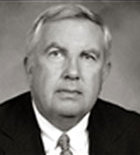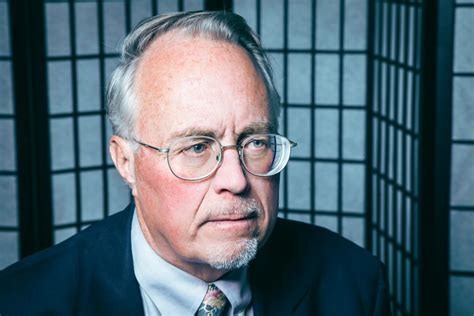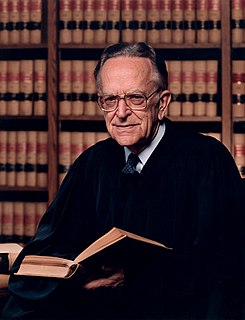A Quote by Fred F. Fielding
Soon after I returned to private practice, former Supreme Court Chief Justice Warren Burger called me one day.
Related Quotes
Politically or ideologically oriented evaluations of Chief Justice Rehnquist should not overlook what a successful and popular chief justice he was within the Court as the justices' presiding officer, .. The contrast between Rehnquist's undeniably happy Court and that of his predecessor, Warren E. Burger, could not have been greater.
All the big corporations depreciate their possessions, and you can, too, provided you use them for business purposes. For example, if you subscribe to the Wall Street Journal, a business-related newspaper, you can deduct the cost of your house, because, in the words of U.S. Supreme Court Chief Justice Warren Burger in a landmark 1979 tax decision: Where else are you going to read the paper? Outside? What if it rains?
In fact, Native American Rights Fund has a project called the Supreme Court Project. And quite frankly, it's focused on trying to keep cases out of the Supreme Court. This Supreme Court, Justice Roberts is actually, hard to believe, was probably worse than the Rehnquist Court. If you look at the few decisions that it's issued.
A chief justice's authority is really quite limited, and the dynamic among all the justices is going to affect whether he can accomplish much or not. There is this convention of referring to the Taney Court, the Marshall Court, the Fuller Court, but a chief justice has the same vote that everyone else has.
The Supreme Court is about the Constitution. It is about constitutionality. It is about the law. At its bear simplest, it's about the law. It is not about the Democrat Party agenda. Because that's what it's become. The whole judiciary has become that because that's the kind of people they have put on various courts as judges, and every liberal justice on the Supreme Court is a social justice warrior first and a judge of the law second. And if they get one more, then they will have effectively corrupted the Supreme Court.
Today, it's not the same playing field as when I first became a lawyer in 1977, where the government had been restricted by our wonderful Supreme Court Justice Earl Warren's court rulings. Now it's all going the other way, the flow is against the defendant, against anything that could really help a client. But you still fight it, you do what you can do. It's all there is.
The notion that the Supreme Court comes up with the ruling and that automatically subjects the two other branches to following it defies everything there is about the three equal branches of government. The Supreme Court is not the supreme branch. And for God's sake, it isn't the Supreme Being. It is the Supreme Court.




































